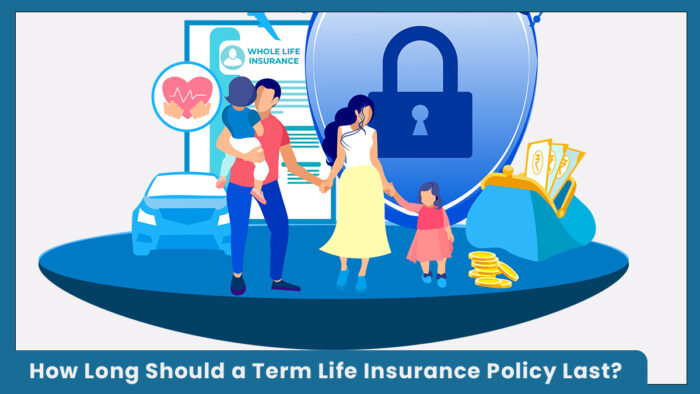How Long Should a Term Life Insurance Policy Last – When buying term life insurance, two important decisions come up: how much coverage you need and how long you need it to last.

Ideally, your policy should cover you until your largest financial responsibilities are taken care of. This often includes your mortgage, your children’s education, or income replacement while you are still working.
What Is the Length of a Term Life Insurance Policy?
Term life policies are typically offered in lengths of 5, 10, 15, 20, 25, or 30 years. Some insurers may even offer 40-year terms. The longer the policy term, the more expensive it usually is. This is because insurers take on more risk as your age increases and health declines over time.
Another option is annual renewable term life. This type allows you to renew each year without reapplying, though the price increases with each renewal. It may work short term, but standard level term policies are often more cost-effective over time.
Which Term Length Is Right for You?
The right policy length depends on your personal situation. Here are common options and who they suit best:
- Annual renewable term life works for temporary needs or as a bridge between jobs with group life benefits.
- 5-year term may suit someone with a short-term loan or financial obligation.
- 10-year term may help parents with older children or those nearing retirement.
- 20-year term is ideal for new parents or young couples starting a family.
- 30-year term is great for covering long-term debts like a mortgage or college tuition.
If your need falls between available terms, round up. For example, if your mortgage lasts 17 more years, a 20-year policy is the safer choice.
How to Choose the Best Term Length
When deciding on term length, consider these key factors:
- Your mortgage: If you want the policy to cover your mortgage, make sure the term lasts as long as your loan.
- Your children’s future: Estimate how long they will depend on you financially, including college years.
- Your retirement timeline: If your goal is to replace your income, you likely do not need the policy after you retire and your financial obligations decrease.
Frequently Asked Term Life Insurance Questions
What happens when a term life insurance policy expires?
When the term ends, coverage stops, and no death benefit is paid unless you renew or convert the policy.
Can you cash out a term life insurance policy?
No, term life does not build cash value, so there is nothing to cash out.
At what age does term life insurance end?
It ends when the selected term runs out, but renewable options may extend up to age 80 or 90, depending on the insurer.
How long should my term life insurance policy be?
Your policy should last as long as your major financial responsibilities, such as a mortgage or supporting dependents.



